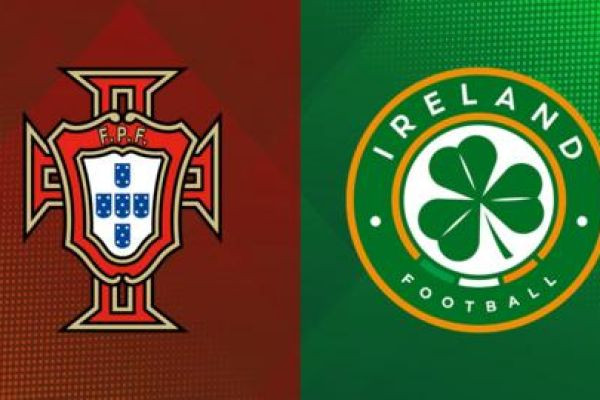The final stages of the 2026 FIFA World Cup European Qualifiers present a dramatic encounter as the Republic of Ireland welcomes the Group F leaders, Portugal, to the iconic Aviva Stadium in Dublin. This match is a pivotal fixture for both nations, though for contrasting reasons. For the Seleção das Quinas, victory would immediately secure their place at the expanded World Cup tournament in the USA, Canada, and Mexico, continuing their run of qualifications which began in 2002. For the Boys in Green, a positive result is paramount to keeping their dwindling hopes of securing a play-off spot alive, especially with a crucial final matchday looming.
Portugal, ranked among the world's elite, comes into the game as the overwhelming favorite, showcasing a blend of experienced stars and dynamic young talent under the guidance of coach Roberto Martínez. They have dominated Group F, amassing a commanding points total that has them five points clear of their nearest challengers, Hungary. Their qualifying campaign has been defined by fluent attacking play and a high volume of goals, although they were recently held to a draw, highlighting a slight defensive vulnerability that Ireland will desperately seek to exploit.
The Republic of Ireland, under manager Heimir Hallgrímsson, faces a daunting challenge. Their campaign has been marked by inconsistency, and they sit third in the group, needing to at least match or better Hungary's result against Armenia to remain in contention for the second-place play-off berth. Despite their struggles on the road, the Irish team has shown significant resilience at the Aviva Stadium, entering this clash with an encouraging five-game unbeaten run at home, including an important recent win over Armenia.
The Duel: Irish Grit Against Portuguese Glitter
The narrative of this match is a classic 'David versus Goliath' encounter, pitting Ireland's trademark resilience and defensive organization against Portugal's star-studded, technically superior attack.
Portugal's Attacking Powerhouse
Portugal's offense is arguably the most potent in the group. The focus, as always, will be on Cristiano Ronaldo, who at 40 continues to defy time and remains the all-time leading goalscorer in international football and World Cup qualifying. His presence, determination, and goal-scoring instincts make him the primary target man, even as he humorously requested the Aviva crowd to "boo him" to ease pressure on his teammates. Supporting Ronaldo is an enviable cast of creative midfielders and wingers, including the dynamic duo of Bruno Fernandes and Bernardo Silva. Their ability to unlock defences with intricate passing, clever movement between the lines, and long-range shooting poses a constant threat. The loss of winger Pedro Neto to injury slightly tempers their wide options, but the depth of talent, featuring players like Rafael Leão and the young João Neves, ensures there is no drop-off in quality.
Ireland's Defensive Discipline
Ireland's strategy will be pragmatic: deny Portugal space, remain compact, and look to frustrate the visitors. Manager Hallgrímsson is expected to deploy a disciplined defensive setup, likely a 3-4-2-1 formation, focusing on absorbing pressure and preventing the central penetration that the Portuguese midfield orchestrates so well. The midfield duo, often featuring Josh Cullen and Jack Taylor, will be tasked with relentless pressing and shielding the back three of central defenders. Crucially, Ireland will have to cope without key attacking threat Evan Ferguson, who is sidelined with an ankle injury, alongside the suspended Ryan Manning and Jayson Molumby. The attacking burden will fall to forwards like Troy Parrott and Adam Idah to be clinical on the break and effective from set-pieces, which have accounted for a significant number of Ireland's goals in this campaign. The performance of their wide players in tracking back will be vital to prevent Portugal's full-backs, such as João Cancelo and Nuno Mendes, from overloading the flanks.
Head-to-Head History (H2H) and Past Encounters
The recent history between these two teams suggests a challenging night for the hosts. Portugal holds a clear advantage in their last six meetings, with four wins, one draw, and only one defeat. The reverse fixture in Lisbon was a dramatic affair, where Ireland came agonizingly close to securing a draw before a 91st-minute goal from Rúben Neves sealed a narrow 1-0 victory for Portugal.
The last time they met in Dublin for a World Cup qualifier in November 2021, the match ended in a tense goalless draw (0-0), a result that demonstrates the Republic of Ireland's capacity to dig deep and hold their own against superior opposition on their home patch. This is the blueprint Hallgrímsson will look to replicate—a disciplined defensive wall, fueled by the energy of the Aviva crowd.
World Cup Qualification Scenarios
For Portugal, the scenario is simple: a win in Dublin guarantees their spot at the World Cup. They can also qualify with a draw or a loss if Hungary fails to beat Armenia in the group's other match.
For the Republic of Ireland, the situation is more complex: they must win and hope that Hungary loses or draws their match. A defeat or a draw for Ireland would likely end their realistic hopes of catching Hungary for the second and final play-off spot, especially with the two teams set to meet on the final matchday.








